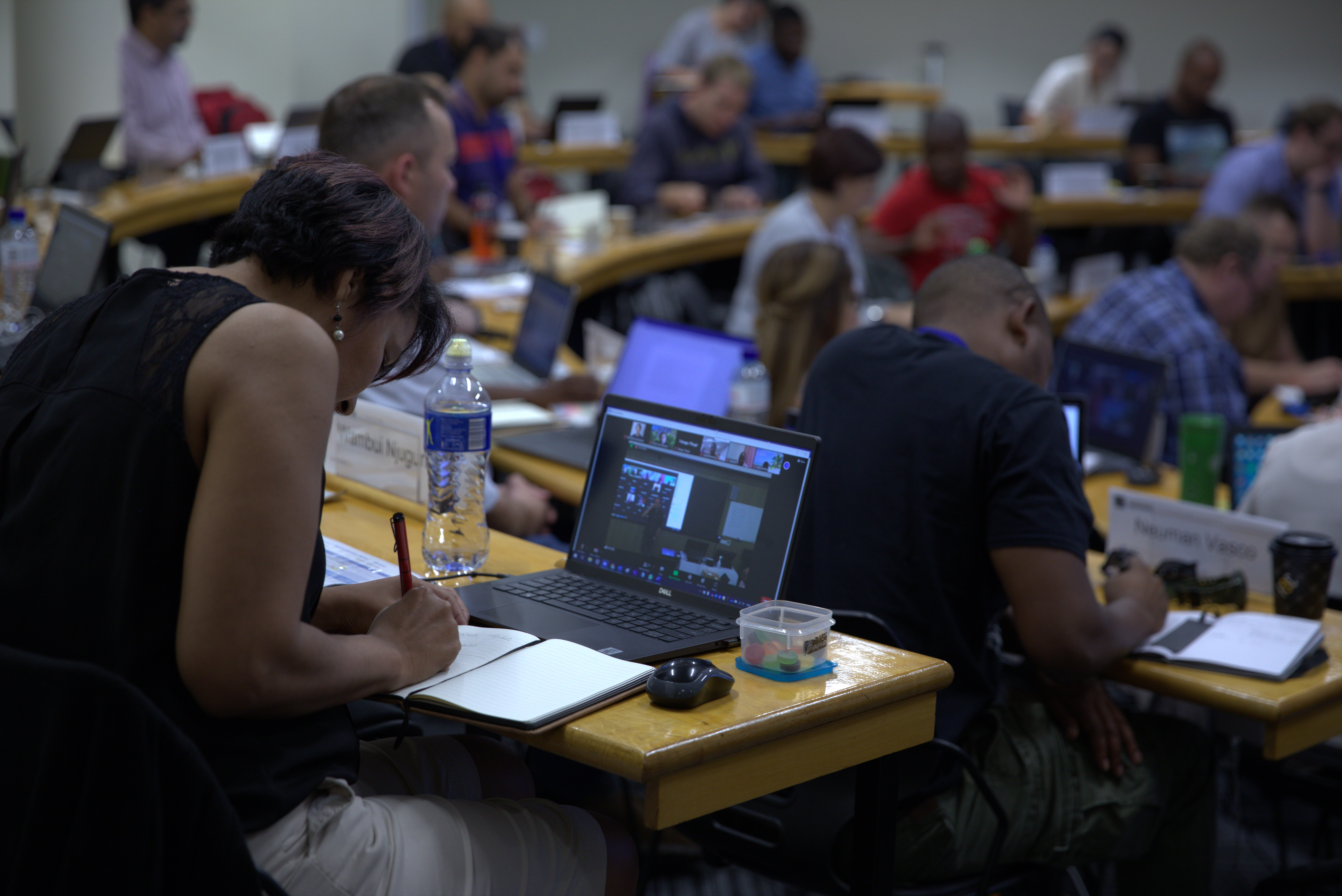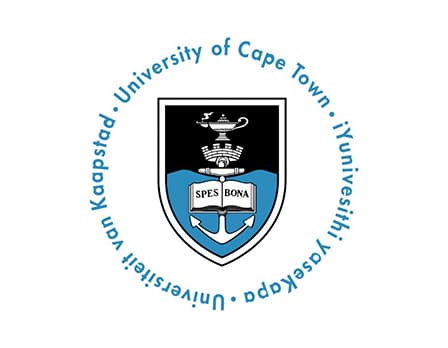Africa is young, fast-growing, and full of potential. By 2050, one in four people under 25 will live on the continent — a shift the UCT GSB calls the “25 in 25” phenomenon. This demographic dividend presents both a challenge and an unparalleled opportunity for bold thinkers and responsible innovators.
“At the UCT GSB, we’re helping shape the future of business on the continent, and preparing our students to lead anywhere in the world,” says Dr Catherine Duggan, Director of the UCT GSB. “Our graduates don’t just learn about emerging markets — they live and lead in them.”
For students who want to be part of building what comes next, there is no better classroom.
As the #1 business school in Africa – enriched by cutting-edge research and global experts – UCT GSB holds the key to understanding the complexities of this emerging market. Over 23,000 alumni across 68 countries consider it their launchpad to making a positive impact in the region and beyond.
“Coming to UCT GSB wasn’t just about gaining a degree – it was shifting my perspective,” says Grace Motsepe, a Full-Time MBA graduate. “I now see it as a tool to drive meaningful change, not just for profit.”
A great city
Cape Town, the “Mother City” of South Africa, is 2025’s best city in the world, according to Time Out. The annual survey assessed 44 criteria, including food, nightlife, cultural offerings, affordability, happiness, and overall city vibe.
It’s a dreamy proposition, the gravity of which isn’t lost on graduates. “I will always be fond of the morning routine we would do, like going to the cafeteria, getting a quick coffee at Vida, or beach volleyball every Thursday,” says graduate Neelo Gopolang. “All those memories are dear to me. As it was my first time experiencing that, it felt like a movie.”
But it’s not just vibes — it’s strategic. Cape Town is one of Africa’s leading innovation hubs, with a thriving start-up scene and a strong ecosystem for sustainability, finance, and social enterprise.

Gopolang pursued the CEMS MIM programme at UCT GSB, spending a semester abroad in South Korea to broaden her worldview. Source: UCT Graduate School of Business
Global reach and recognition
Gopolang pursued the CEMS Master in Management (MiM) at UCT GSB — an 18-month programme that combines two terms in Cape Town with a third on an international internship. Many international students are also attracted by the 12-month immersive experience of the MBA Full Time, while the Executive MBA, ranked as the best EMBA in Africa and the Middle East, brings together a diverse group of senior leaders from around the world.
“The EMBA helped me realise that leadership is not just about answers — it’s about asking better questions,” says Dr Nicolette van der Merwe, EMBA graduate. “It challenged me intellectually and emotionally, and helped me grow in every dimension.”
At UCT GSB, ideas and debates would often go beyond borders, thanks to programmes with global accreditations and a community with over 138 nationalities represented. There are many opportunities to immerse in different cultures and regions. For Gopolang, that was through spending five months in South Korea on exchange. For student Andries Fourie, it was the nature of the Modular MBA programme.
“The UCT GSB has provided me with the opportunity to connect with a diverse range of professionals across Africa,” says Fourie. “The modular format allows me to immediately apply what I learn back in my organisation — which has made the experience incredibly practical and valuable.”
A value-for-money education
A UCT GSB education has a high ROI. Simply put, benefits significantly outweigh costs. Tuition is competitive, yet well-priced. Cape Town is world-class and high on the livability index, yet the cost of living remains affordable.
Then there are all the opportunities available to graduates: career advancement, potential for higher salaries, a location that doubles as a launchpad to everything the continent has to offer, and so much more. Ultimately, the true measure of ROI is whether the degree makes you more competitive and fulfilled in your chosen path – which UCT GSB has and continues to deliver.

The UCT GSB was established in 1964. Source: UCT Graduate School of Business
A practical learning environment
Students at UCT GSB aren’t passive learners in a classroom. They’re independent leaders who innovate and address the most pressing economic and social challenges. “What stood out for me was how rooted the programme was in the African context, while still maintaining a global outlook,” says Ayanda Sibanda, an MBA graduate. “It was rigorous, but also deeply relevant.”
The curriculum is designed to be hands-on, allowing students to apply theory to real-world scenarios, such as through weeks-long internship opportunities that equip students with the crucial skills to launch successful ventures.
Such rigorous learning occurs within UCT GSB’s tailor-made training facilities. It has sound-proofed meeting rooms equipped with the latest tech, a 900-capacity conference centre operated by Marriott hotels, and specialised centres seeking solutions for a better future.
Experts in the emerging markets of business
Africa’s booming markets and youthful demographics position UCT in a unique spot: the university has the expertise to transform growing business opportunities into global success. The school’s 32 full-time faculty members are internationally acclaimed researchers, guiding students to solve problems on a national scale and reform policies for a fairer world.
Experts at GSB conduct cutting-edge research across three thematic clusters: (1) emerging markets finance, investment and trade; (2) social innovation and sustainability; and (3) values-based leadership. Through centres of excellence such as the Case Writing Centre and the Power Futures Lab, their work spans award-winning cases that address Africa’s emerging business markets to research publications covering the impact of accelerators in underprivileged regions.













